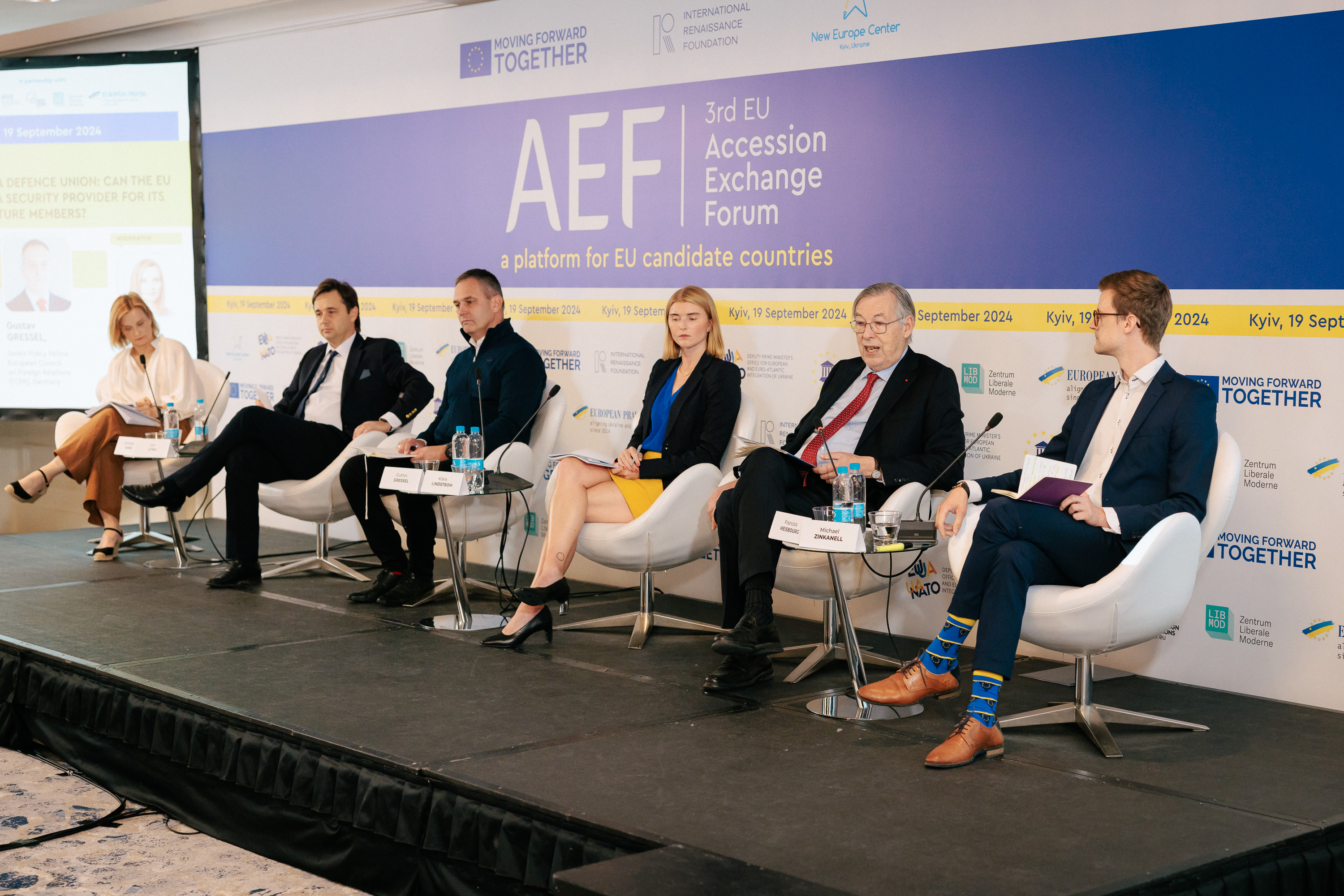
We bring to your attention the key messages of the speakers from the Session 6 “Gearing up for a Defence Union: can the EU stand alone as a security provider for its current and future members?” during the 3rd EU Accession Exchange Forum:
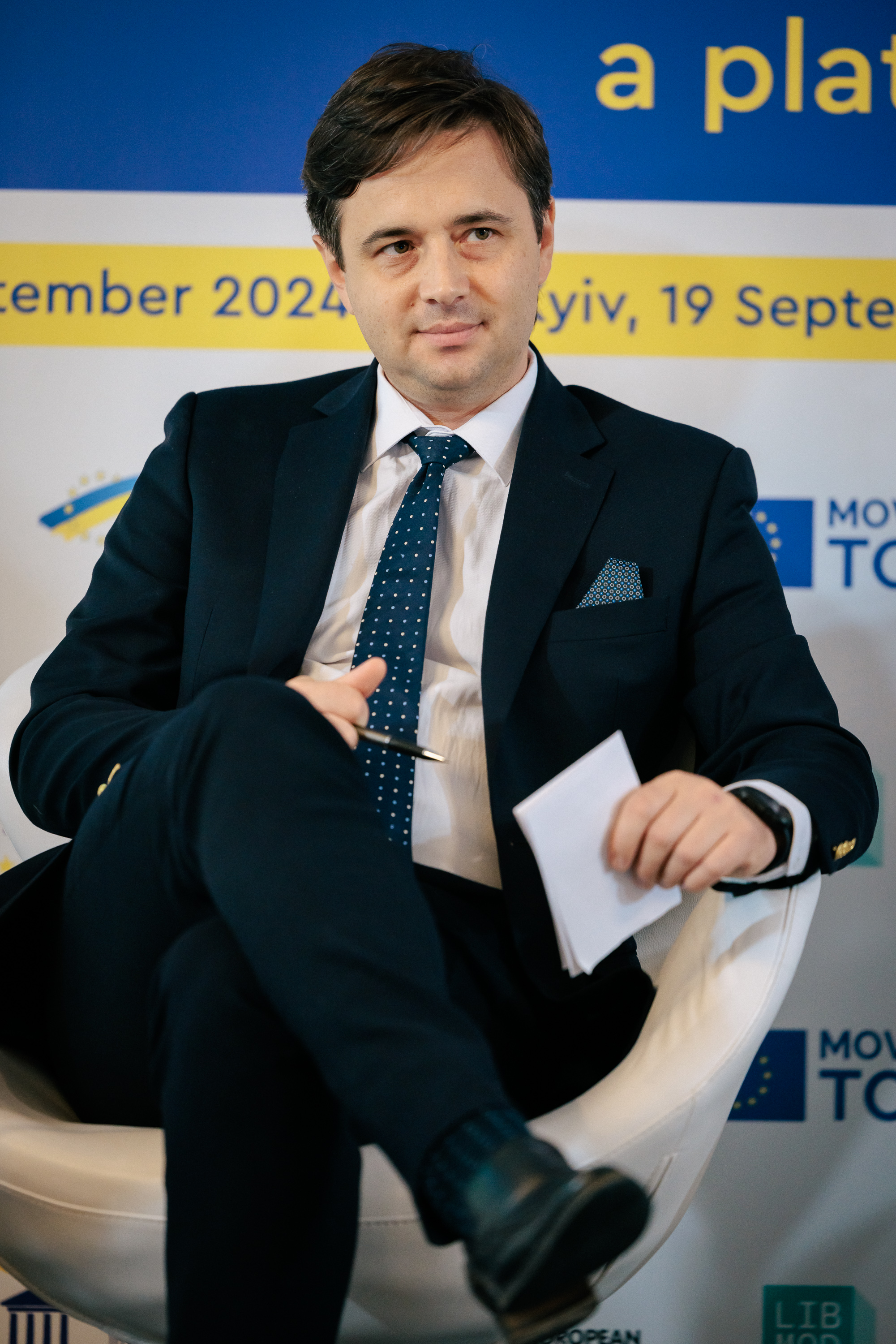
Leo Litra, Senior Research Fellow, New Europe Center, Ukraine:
A lot of current problems with European defenсe and supplies to Ukraine derive from the overall strategy that Ukraine should not lose. And Russia should not win. But still, this is a problem to say — Ukraine should win and Russia should lose. If we change the strategy, if it would be different, I think that we would see a different flow of weapons into Ukraine and different policy approach towards Ukraine.
In Ukraine, we have a very different sense of urgency when it comes to all war-related issues, and I know that we can go quite often to other countries and explain the situation. But it doesn’t work as well as when a certain official would go to Kharkiv for a couple of days. Then the sense of urgency is totally changing. People see it from a very different perspective because they see that every day means saving lives and infrastructure. While being somewhere far away from Ukraine and not having this touch, emotional touch, you cannot do this.
Increase the defence funding. I have to say that in Ukraine, there were a lot of people quite ashamed that many countries pledged financial contribution to the Czech initiative, and there have been months they did not fulfil their commitment. Even today, I can tell you that there are states which committed their financial contribution to the Czech initiative and did not deliver yet. This is something which is very critical. Ukraine builds a lot of its strategy in the war depending on the commitments that other countries do. And how can Ukraine follow its strategy if we are basically left without what has been committed to Ukraine?
Talking about European defence industrial strategy, I think this is an excellent document for the beginning, parts of it have already been implemented. The problem is that the amount of funds put in this strategy is really bad. Putting 1.5 billion euros, it is addressing the bottlenecks of the production chains in the defence sector. And this strategy funds 8 or 9 projects in various EU countries. But if you look at the examples from Russia, they put 1.5 billion in one factory. So, how do you can compare 1.5 billion for the whole Europe and 1.5 billion in one factory.
An idiot with a plan can beat a genius without a plan. So we all know who an idiot is. And unfortunately, the idiot has a plan. And the genius doesn’t have one. This is the problem we are currently struggling with.
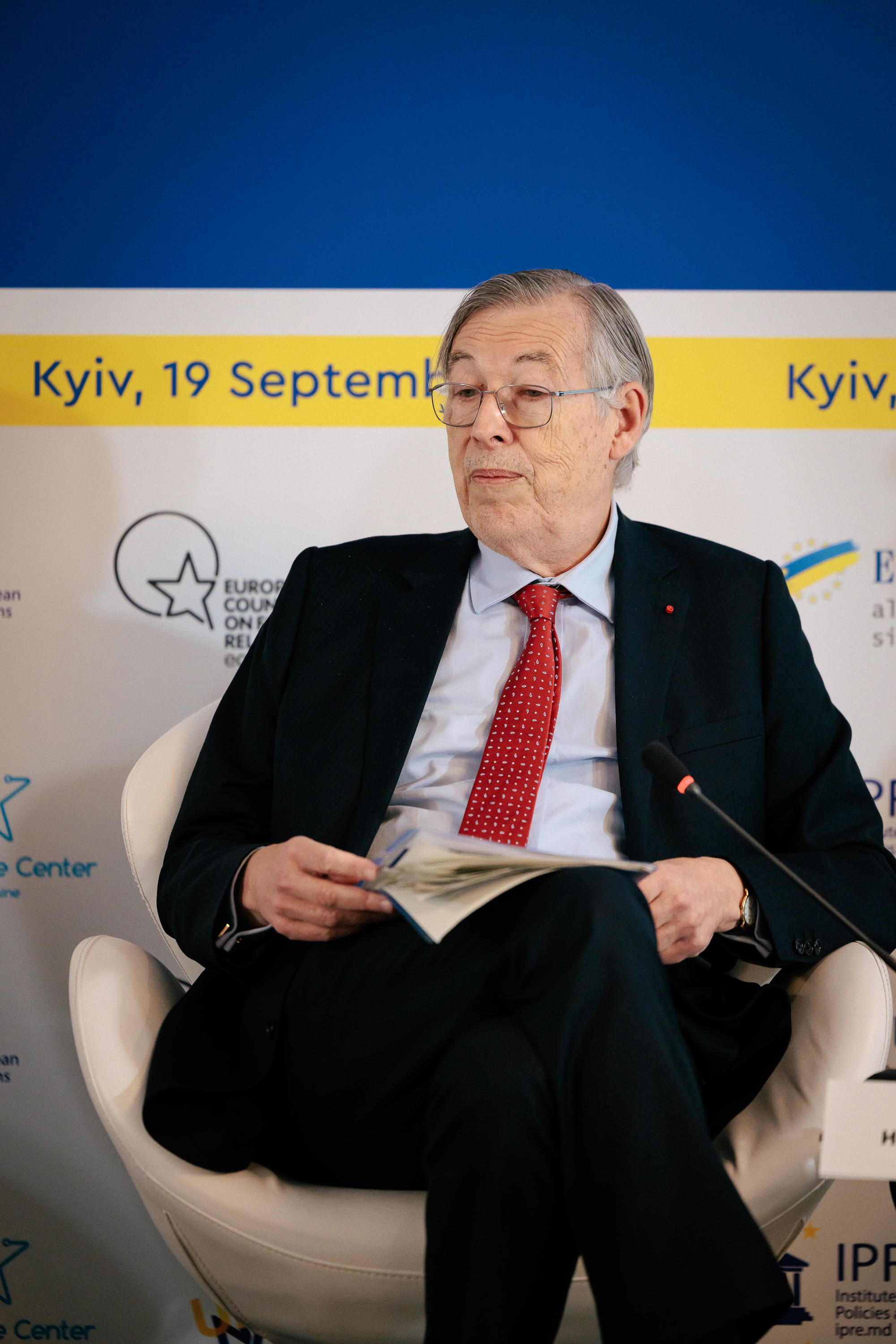
Francois Heisbourg, Senior Advisor for Europe, International Institute for Strategic Studies (IISS), France:
First of all, Europe is not ready to assume its own defence. Secondly, the candidate countries, notably Ukraine, have been contributing enormously to the EU’s defence capacity. And what can the EU and its candidates do more to safeguard the peace on the continent? Well, it depends a lot on our own decisions.
Defence guarantees for Ukraine: question was how long would it take to get into the EU? And the answer was: let’s talk about NATO. If the United States, followed by its European partners, most of which are in favour of Ukraine joining NATO, it can happen in 18 months. It took 18 months for the Federal Republic of Germany, a divided country partially occupied by the Soviet Union, to make it into NATO back in the 50s. The same model could very well apply to Ukraine.
First reality check for Europe now, and it’s one which the Ukrainians don’t need to be reminded of. It’s for those folks amongst us who live in the Brussels bubble, who tend to forget the basics. And that is, we are wholly dependent on the Americans for the time being. Yes, we’ve had some success in circumventing American restrictions. The mere fact is that Britain and France have delivered Storm Shadows, Scalps, and it was in contravention to American priorities. The Americans have still not delivered their launch cruise missiles. I’m waiting, but I’m not waiting too hard because it would be rather boring. It could last a long time.
The second reality check, and this was a really good surprise, is that the Europeans have managed to gain as much rapidly in many terms as the United States has in support of Ukraine. We’ve given a lot more in terms of money in general, but also succeeded in the field of defence, and most Americans don’t know this. And there may be a bit of fact-checking which we should help the Americans make, they do not realize that we have been giving half of the weaponry, which has been provided to Ukraine. That proves that we are not completely amorphous and unresponsive.
If the Americans are going to move away, gradually or rapidly, and if NATO survives, and it is the best thing in the field of defence, it is going to be a much more European NATO, and a NATO without a lead power.
The Ukrainians know the full value of strategic autonomy. If you can’t use long-range ATACMS, if you can’t use Storm Shadow, what do you do? Well, you can use Neptune. You can use long-range stuff which goes very deep into Russia. But to do that, you have to have strategic autonomy. Folks in Ukraine know it. Folks in Brussels don’t.
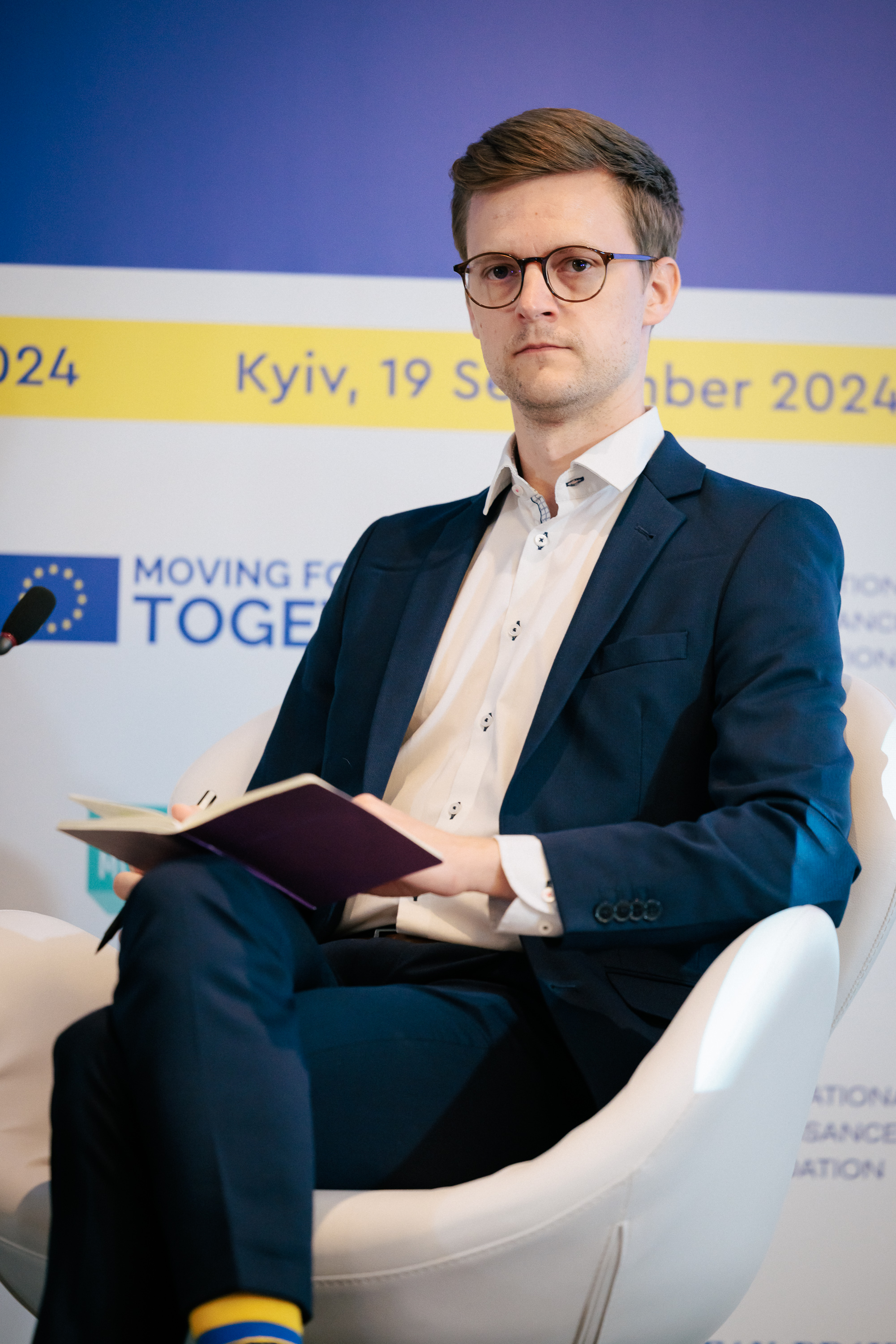
Michael Zinkanell, Director, Austrian Institute for European and Security Policy (AIES):
Ukraine had developed its capabilities and today is by far the most advanced and the most experienced armed forces on the European continent. That means that there is a lot of potential also for other European member states to learn from Ukraine and to seize the experience that Ukraine is making in the field of security, defence, and defence industry in particular.
Russia will remain the number one threat for security and defence. That is true for Austria, that is true for other European member states, that is of course also true for this region here, for Ukraine, for the eastern part of Europe. We have seen since 2014 that in the hybrid realm, but also in the conventional realm, Russia is a threat, and that will remain the case.
If we leverage military experience of Ukraine, making these enormous advances in defence industry, also for other European countries that will build up the military muscle that Europe needs to be a geopolitical player. So, better integration of European and Ukrainian defence industries would also enable Europe to fulfil that geopolitical task of enlargement.
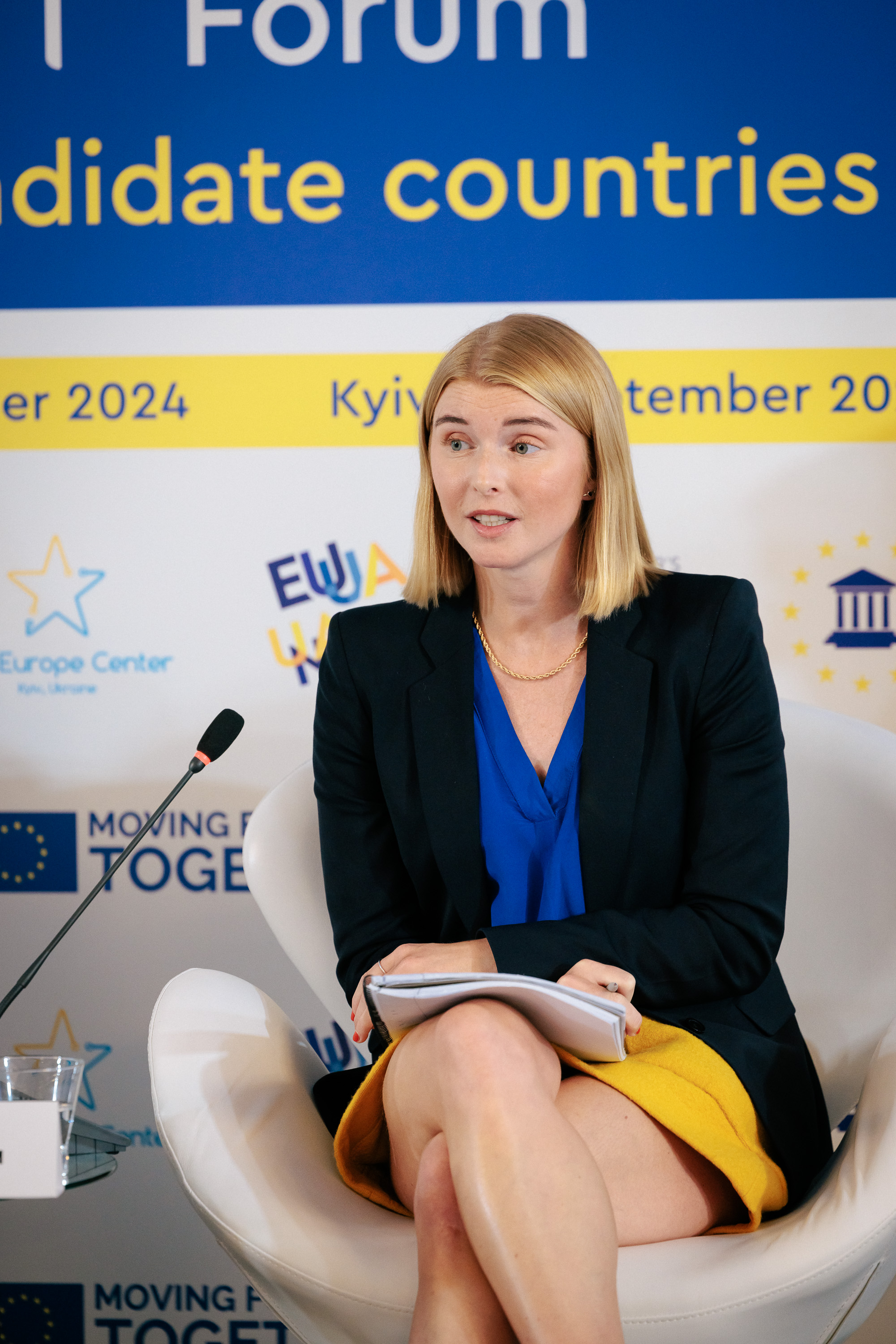
Klara Lindstrom, Analyst, Stockholm Centre for Eastern European Studies (SCEEUS):
In the Nordic countries the key realization is that it is not only the war in Ukraine, not Ukraine crisis, it is a Russia crisis. The stakes are incredibly high. We are not only speaking about the sovereignty, independence and existence of Ukraine, but of the whole rules-based order and the values that many Europeans today take for granted.
The EU has already become a geopolitical actor by starting the accession negotiations with Ukraine. It is unprecedented that the EU starts formal accession negotiations with a country in which there is a hot war and the EU is already invested both economically and also militarily. So, I think it is a story that we have to push as strong as we can. And this is the task for us, think tanks and the NGO world.
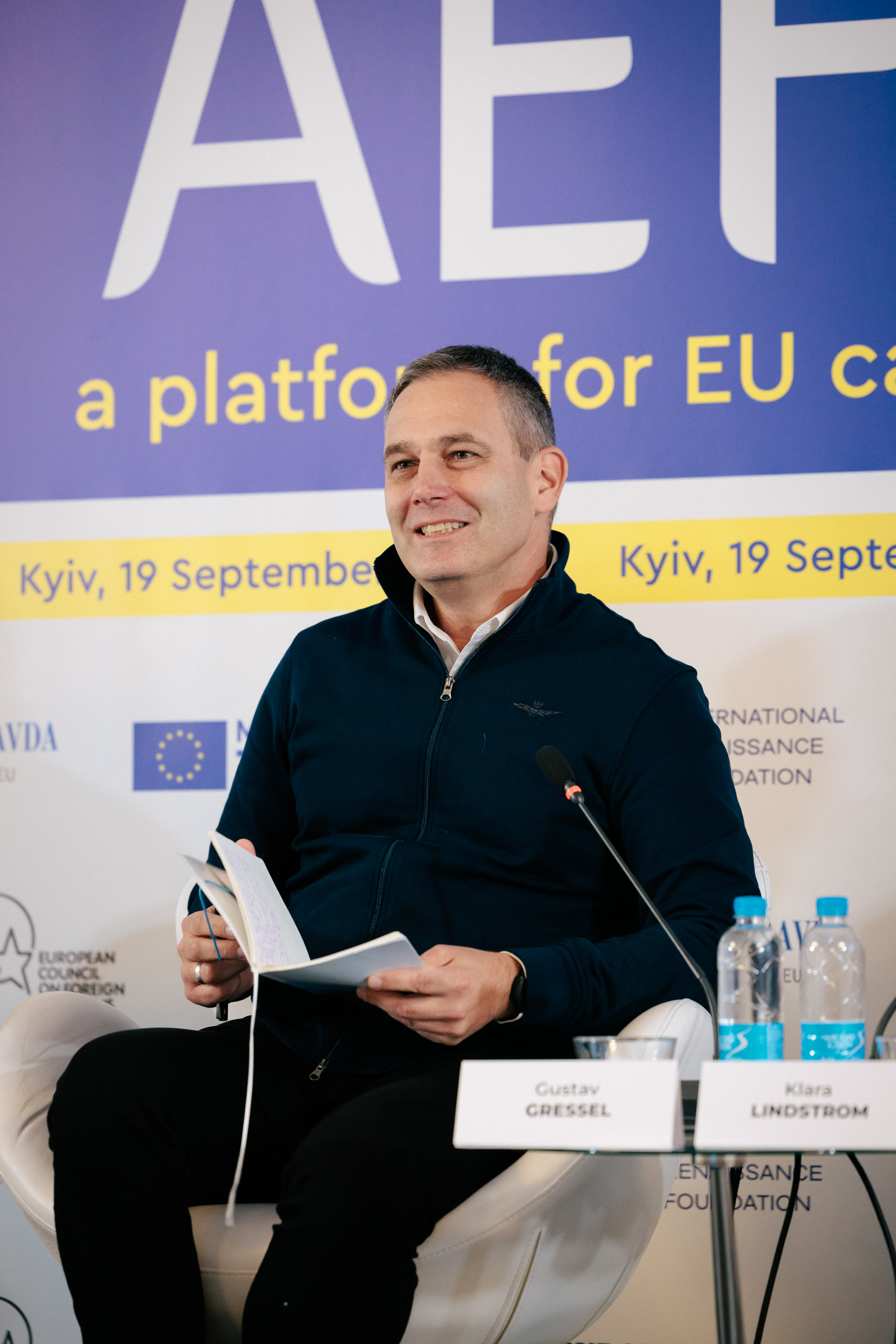
Gustav Gressel, Senior Policy Fellow, European Council on Foreign Relations (ECFR):
Basically, Germany does not question the American prioritization of escalation management over the consequences of the war. And even though, of course, a negative trajectory of the war would have severe long-term consequences for European security, and Germany in particular.
The current German government so far is actually a quite Eurosceptical government. They don’t pronounce it in official communication, but behind the curtain they’re actually quite negative about what they see in the EU. There’s an increasing feeling that the EU is basically a big basket where Germany pays and everybody else benefits. And whenever there is a new instrument the EU tries to come up with and the first reaction in Berlin is usually negative. You really need to massage the benefits into them to make them accept what is going on. Then, in the end, Germany usually actually contributes.
When we discuss all the EU initiatives on defence and defence industry, we need to keep in mind that the EU itself does not have executive powers. EU can’t procure a single shell. The EU can reimburse countries when they produce artillery shells to deliver to Ukraine, it can facilitate the framework contracts, but if member states don’t book lots in that contract, then nothing will be procured. So the basic problem of the past two years is if the member states are too reluctant to act, if member states are bad at coordinating things because they don’t inform their neighbours and partners whether they’re buying or not buying certain equipment, if they are not interested in picking up these efforts, then nothing happens. The Commission can write and do what it wants, but it depends on the will and the leadership of the member states to make it happen.
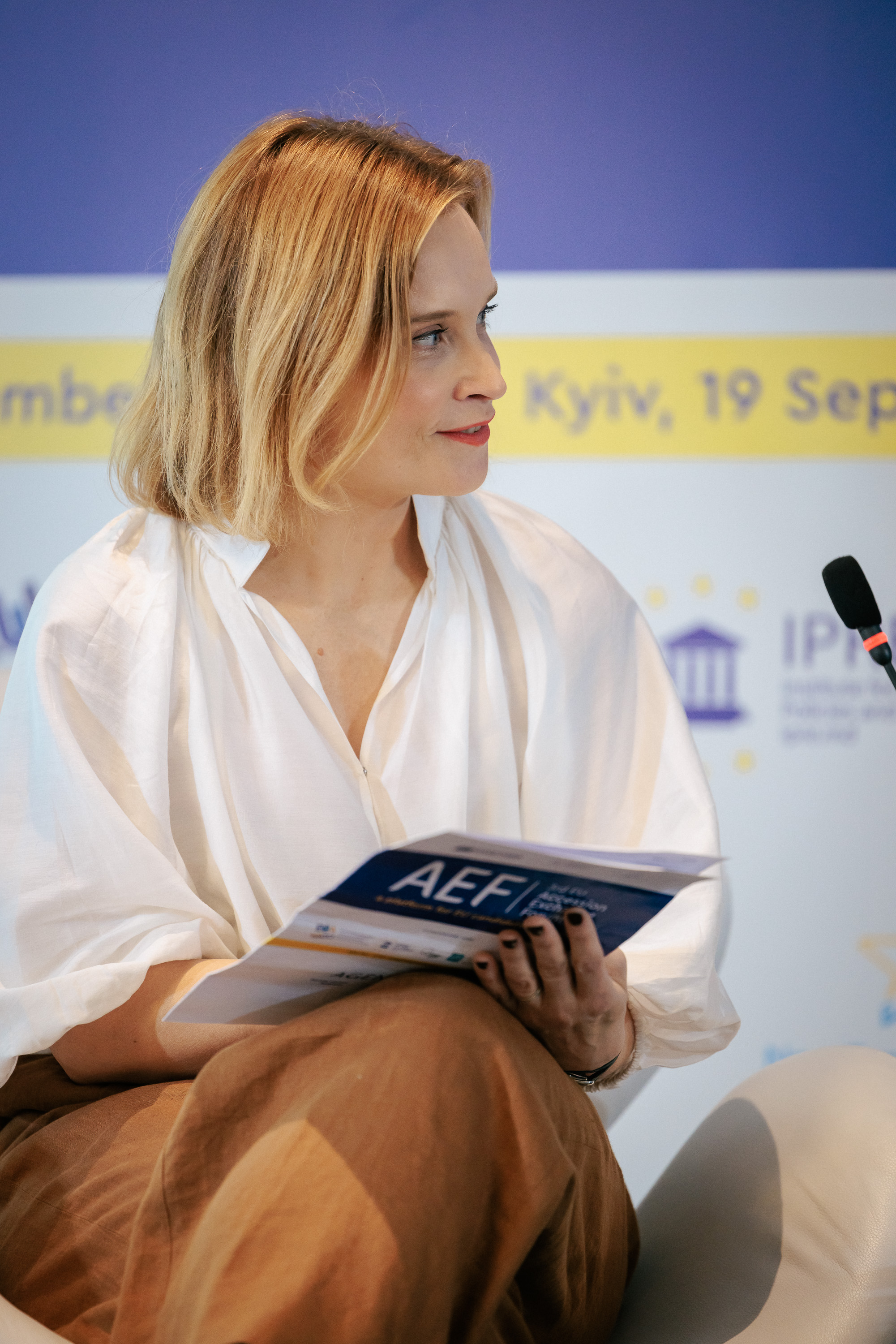
Moderator: Sinikukka Saari, Leading Researcher, Finnish Institute of International Affairs:
The debate about European defence for a very long time was theoretical – easy to debate, and no policy followed. But I think this all changed in February 2022, suddenly, the sleeping beauty of European defence woke up to the realities of Europe today. It realized that Russia’s war of aggression against Ukraine is real, Russia’s long-term threat to European security is real and also that the US withdrawal from Europe is a question more of a when than if. And these are the three key challenges that we are facing today.
Europe has really stepped up its defence policy. But it is really a challenge because we have this urgency to deliver military aid to Ukraine in order to ensure Ukraine’s victory. And on the other hand, we also have to prepare for the long-term Russian threat for European security.
The EU is such a key actor today in providing military aid to Ukraine and kind of stepping up the defence industrial capability, that the EU’s role in defence matter has really strengthened.
Video recording of the Forum is available here.
PHOTO report of the Forum is here.
The EU Accession Exchange Forum is organized by the New Europe Center in partnership with the Office of the Deputy Prime Minister of European and Euro-Atlantic Integration of Ukraine, the International Renaissance Foundation, the European Council on Foreign Relations, the Institute for European Policies and Reforms, the Center for Liberal Modernity and the European Pravda. The EU Accession Exchange Forum is taking place with EU support, within the EU-funded “European Renaissance of Ukraine” project implemented by the International Renaissance Foundation.
New Europe Center is greatful for wide media support of the Forum to informational agency UKRINFORM.







